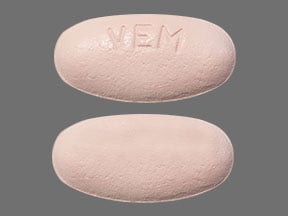
Zelboraf Coupons & Savings Card – Discount Prices from $6273.15
My prescription
Edit
240MG, Zelboraf (112 Tablets)
Select pharmacy

Albertsons
$6273.15
COUPON PRICE
Walgreens
$6294.08
COUPON PRICE
Walmart
$6309.58
COUPON PRICEZelboraf savings card
Show this card to your pharmacist
Albertsons
$6273.15
BIN
ID
PCN
GRP
019876
LHA81A869B
CHIPPO
LHX
Powered by
Related kinase inhibitors prescriptions
Related kinase inhibitors prescriptions
Price history for Zelboraf
112 Tablets, 240MG
Average retail price for Zelboraf
Average SaveHealth price for Zelboraf
Our price history data is based on aggregated prescription data collected from participating pharmacies in America. Our prescription data updates daily to reflect the latest price changes. If you notice a missing data point, it means there wasn't sufficient data available to generate a monetary value for that date.
*Retail prices are based on pharmacy claims data, and may not be accurate when we don't have enough claims.
Zelboraf dosage forms
Dosage Quantity Price from Per unit 240MG 112 Tablets $6273.15 $56.01
| Dosage | Quantity | Price from | Per unit |
|---|---|---|---|
| 240MG | 112 Tablets | $6273.15 | $56.01 |
What is Zelboraf used for?
Zelboraf is used for the treatment of certain types of melanoma, specifically melanoma that is unresectable or metastatic and has a BRAF V600E mutation. It is important for patients to have their cancer tested for this mutation before starting treatment with Zelboraf.
How much does Zelboraf cost?
The cost of Zelboraf can vary depending on factors such as the pharmacy, location, insurance coverage, and dosage prescribed. It is recommended to contact a local pharmacy or healthcare provider for the most accurate and up-to-date pricing information. Additionally, patients may explore patient assistance programs or insurance options to help manage the cost.
What class of drug is vemurafenib?
Vemurafenib is classified as a BRAF inhibitor. It is used in the treatment of certain types of cancer, specifically those with a BRAF V600E mutation.
Is vemurafenib a BRAF inhibitor?
Yes, vemurafenib is a BRAF inhibitor.
What type of cancer can Zelboraf help cure?
Zelboraf is used to treat melanoma, a type of skin cancer, that has spread to other parts of the body or cannot be removed by surgery. It is specifically indicated for patients with melanoma that have a BRAF V600E mutation.
